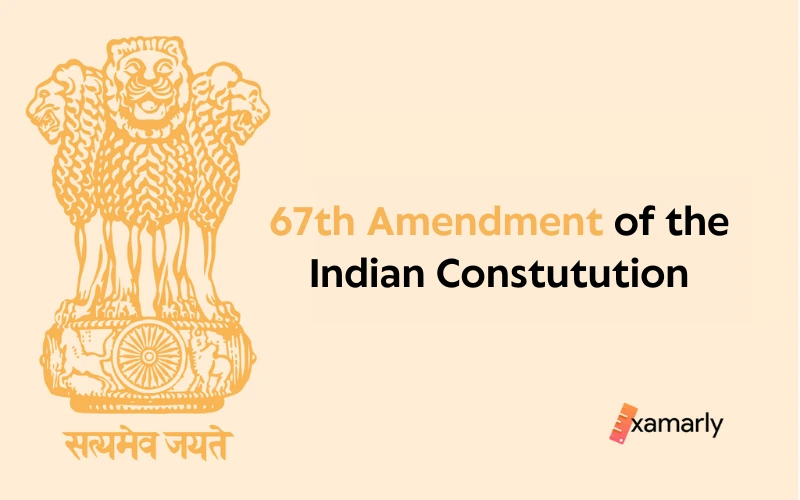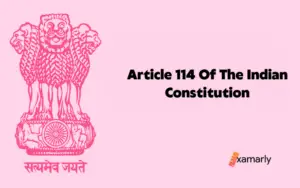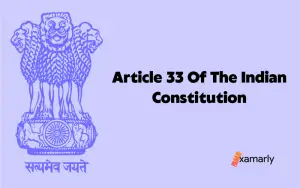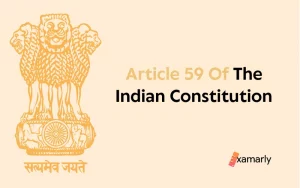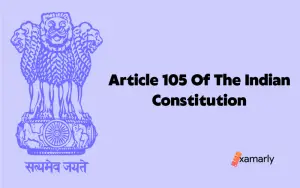This blog for UPSC preparation discusses an important constitutional amendment. The Indian Constitution undergoes several amendments to ensure that the principles of democracy and the fundamental rights of its citizens are protected.
The 67th Amendment of the Indian Constitution made significant changes to the Indian Constitution. On October 4, 1990, a bill to amend the Indian Constitution was tabled in the Indian Parliament, by then Home Minister Mufti Mohammed Sayeed.
The “Sixty-Seventh Amendment Act, 1990” was the name of the law that permitted the President’s administration in Punjab to be prolonged by 4 years.
Read on to learn more about this amendment to the Indian Constitution to cover the UPSC syllabus.
67th Amendment of the Indian Constitution: Background
- As terrorism was stretching its wings in Punjab, social turmoil and security were getting compromised to a greater extent. To tackle the same, both Houses of Parliament passed the 59th Amendment of the Indian Constitution to give the government the power to declare an Emergency in the State.
- In an Emergency in Punjab, the Central Government was empowered to declare an emergency. President’s rule could last for a maximum of three years under this amendment. Previously, the maximum period was two years.
- The Constitution (Sixty-fourth Amendment) Act of 1990 appropriately amended clause (5) of Article 356 and lengthened the three-year time frame in the particular instance of the Declaration made available on May 11, 1987, with regard to the State of Punjab to 3 years and 6 months.
- On October 1, 1990, a bill to amend the Indian Constitution was tabled in the Indian Parliament, by then Home Minister Mufti Mohammed Sayeed. The “Sixty-Seventh Amendment Act, 1990” was the name of the law that permitted the president’s administration in relation to the territory of Punjab to be prolonged by 4 years.
Related Post: Article 352 of the Indian Constitution
Salient features and facts
The 67th Amendment of the Indian Constitution was an act that aimed to amend the Indian Constitution in the Forty-First year of the Republic of India. Its features are as given:
- The Constitution (Sixty-seventh Amendment) Act, 1990, was another name for this legislation.
- Constitutional amendment to Article 356.-In Article 356 of the constitution, the 3rd provision with respect to clause (4), the phrase “3 years and 6 months” was replaced by the following phrase “4 years.”
Date enacted
The 67th Amendment of the Indian Constitution was enacted on October 4, 1990.
Statement of Objects and Reasons
The Constitution (Seventy-sixth Amendment) Bill, 1990 (Bill No. 158 of 1990), was passed and became law in 1990 as THE CONSTITUTION (Sixty-seventh Amendment) Act, 1990. Its appendices provide a statement of its objectives and justifications.
- Any Proclamation made in accordance with Article 356 of the Indian Constitution and passed from both Houses of the Indian Parliament was to remain in effect for longer than three years, according to clause (4) of that article.
- Nevertheless, under clause (5) of the aforementioned article, neither House of Parliament was granted the authority to approve a resolution recommending the extension of a Pronouncement granted under clause (1) of that article further than a period of one year. On the grounds, that both of the requirements for an Emergency Proclamations were met in all or portions of the State.
- Given the challenges occurring in holding and control of elections for the State’s Legislative Assembly as indicated in that section, the Election Commission had certified that the continuance of the Declaration issued under clause (1) was required.
- The Constitution (Sixty-fourth Amendment) Act of 1990 appropriately amended clause (5) of Article 356 and lengthened the three-year time frame in the particular instance of the Declaration made available on May 11, 1987, with 3 years and 6 months in relation to the State of Punjab.
- In the hope that the State’s Legislative Assembly polls were indeed able to go ahead. Unfortunately, the then-current state of affairs in the State still didn’t offer much hope for fair and peaceful election polls to the State Legislative Assembly.
- Therefore it was recommended to change clause (4) of Article 356 of the Indian Constitution to make it easier to extend the Proclamation mentioned above in reference to the State of Punjab for a maximum of four years.
Also Read: 66th Amendment of the Indian Constitution
Prominent people involved
Then Home Minister Mufti Mohammed Sayeed presented the Sixty-Seventh Amendment bill in the Indian Parliament. President R. Venkatraman gave his nod for the same.
Important provisions
- The Constitution (Sixty-seventh) Act, 1990, was another name for this legislation.
- The phrase “three years and six months ” to Article 356’s, 3rd provision to clause (4) was changed to “four years.”
You Might Also Like: 68th Amendment of the Indian Constitution
Summing Up
Through this blog for UPSC preparation, you learnt that the 67th Amendment of the Indian Constitution made significant changes to the Indian Constitution.
On October 4, 1990, a bill to amend the Indian Constitution was tabled in the Indian Parliament, by then Home Minister Mufti Mohammed Sayeed. The “Sixty-Seventh Amendment Act, 1990” permitted the President’s administration in Punjab to be prolonged by 4 years.
FAQs
What is the 67th Amendment of the Indian Constitution all about?
The Sixty-Seventh Amendment Act, of 1990, was the name of the law that permitted the President’s administration in Punjab to be prolonged by 4 years. Also, the words “three years and six months” shall be changed to “four years” in Article 356’s 3rd provision with regard to clause (4).
When was it enforced?
October 4, 1990.
What was the bill for the 67th Amendment of the Indian Constitution called?
The Constitution (Sixty-seventh Amendment) Bill, 1990.
When was the bill introduced in the Parliament of India?
October 1, 1990.
Who introduced this bill?
Mufti Mohammad Sayeed


